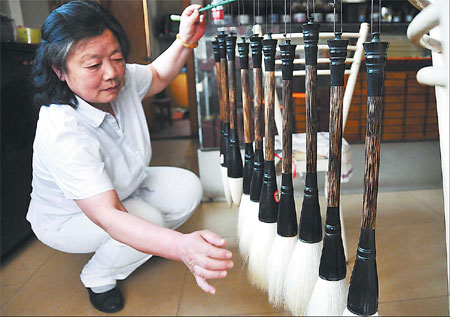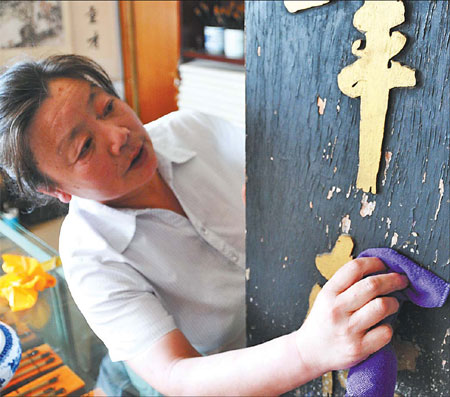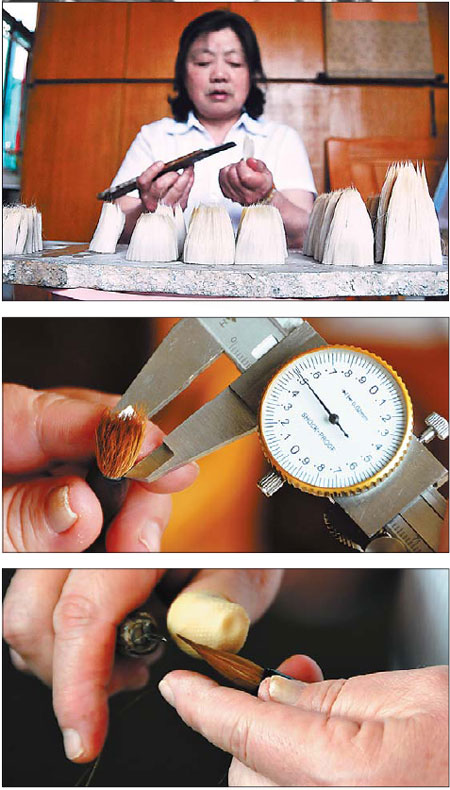Master strokes
Updated: 2013-06-21 08:57
(China Daily)
|
|||||||||||
|
Gong Guizhi started to learn brush making when she was 7 years old. She has spent more than 50 years with brushes and devoted her life to promoting the traditional writing instrument. Photos by Li Yansong / for China Daily |
In this information technology age, most people are better at typing than handwriting. But a brushmaker is determined to keep the tradition alive.
Among the world's writing and painting instruments, the writing brush is unique to China. As far back as the Warring States Period (475-221 BC), brushes were widely used for writing and painting. As the world is increasingly dominated by computer fonts and rapid-fire social networks, the craftsmanship of brushmaking is dying out. Fuxinghe in Qufu is a time-honored brand famous for handmade writing brushes. It was recently been listed among Shandong province's intangible cultural heritage. Gong Guizhi, the fifth generation sustainer of the brand, preserves the tradition and is determined to pass down the art.
|
Fuxinghe was founded during the Guangxu period of the Qing Dynasty (1644-1911). Located a stone's throw from the Confucius Temple in Qufu, the shop used to be the temple's authorized supplier of writing brushes. |
|
The procedure is complex, from selecting raw materials to engraving brushes' shafts. The family produces up to 100 brushes a week. |
(China Daily European Weekly 06/21/2013 page4)
Today's Top News
List of approved GM food clarified
ID checks for express deliveries in Guangdong
Govt to expand elderly care
University asks freshmen to sign suicide disclaimer
Tibet gears up for new climbing season
Media asked to promote Sino-Indian ties
Shots fired at Washington Navy Yard
Minimum growth rate set at 7%
Hot Topics
Lunar probe , China growth forecasts, Emission rules get tougher, China seen through 'colored lens', International board,
Editor's Picks

|

|

|

|

|

|








